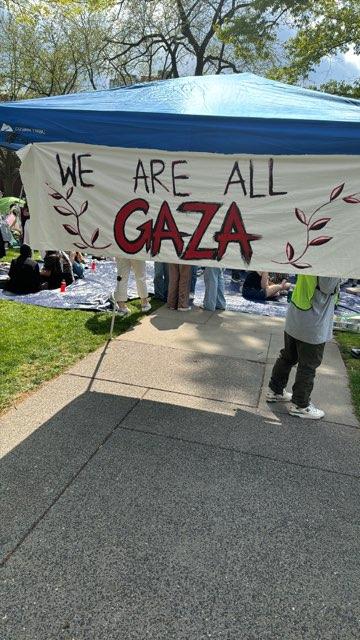Poker seems to be a hot topic nowadays. Folks are playing online and in casinos. Last year (2019), the World Series of Poker had 8,569 players with a top prize of $10 million.
In my earlier, non-Jewish days I too played poker. Was quite good at it: Dropped out of 6 out of 7 hands and won 6 out of 7 that I stayed in. And I am still a card fan. I play every day. Except I play a better game. When I look at cards, I see something different, which is far more rewarding than poker.
When I look at the Ace, it reminds me that there is but one God.
And the Deuce reminds me of Yaakov’s two grandsons, Ephraim and Menashe, whom we honor each Shabbos when we bless our sons (“May God make you like Ephraim and Menashe…”)
When I see the Three, I think how I daven (pray) in a synagogue three times a day.
And when I see the Four, I think of our four matriarchs, Sarah, Rebecca, Rachel and Leah, whom we remember each Shabbos as we bless our daughters (“May God make you like Sarah, Rebecca, Rachel and Leah…”)
And when I see the Five, it reminds me of the five books of Moses—Genesis, Exodus, Leviticus, Numbers and Deuteronomy—that we read in their entirety every year in the synagogue, one portion (parsha) at a time each week. Anywhere you travel in the world you will hear the same parsha being read in the local synagogue.
When I see the Six, it reminds me that in six days, God made heaven and earth.
When I see the Seven, it reminds me that on the seventh day, God rested from His great work.
And when I see the Eight, I think of the eight righteous people God saved when He destroyed this earth: Noah, his wife, their three sons and their wives.
And when I see the Nine, I think of The Nine Days of the Hebrew month of Av, commemorating the destruction of the first and second Temples in Jerusalem. And I know that proper mourning of the Temple’s destruction will help me to see its rebuilding.
When I see the Ten, I think of the Ten Commandments God handed down to Moses at Mt Sinai. “And He gave unto Moses, when He had made an end of speaking with him upon Mount Sinai, the two tables of the testimony, tables of stone, written with the finger of God.” Exodus 31:18
The Jack or Knave reminds me of Haman, a knave if there ever was one. We learn about Haman in the story of Purim, which is found in the Book of Esther, traditionally read from the Megillah (a scroll that means “rolled”). Haman, prime minister of Persia, was an evil man, who plotted to destroy the Jews when Jews would not bow to him (we only bow to God).
And when I see the Queen, I think of our mothers and our wives who are our queens. And I also think of how we welcome in Shabbos each week—welcoming the bride, our Queen.
When I see the King, it reminds me that there is but one King, Hashem.
When I count the number of spots on a deck of cards, I find 365, the number of sinews in our body, that together with our 248 organs equals 613, the number of mitzvot God gave us (OK, there are actually 364, so I let my imagination help me to carry out this mitzvah).
There are 52 cards, the number of times we honor Shabbos in a year.
There are 13 cards in a suit, which reminds me of the 13 principles faith:
1. Belief in the existence of the Creator be He Blessed, who is perfect in every manner of existence and is the primary cause of all that exists.
2. The belief in God’s absolute and unparalleled unity.
3. The belief in God’s non-corporeality, nor that He will be affected by any physical occurrences, such as movement, or rest or dwelling.
4. The belief in God’s eternity.
5. The imperative to worship Him exclusively and no foreign false gods.
6. The belief that God communicates with man through prophecy.
7. The belief that the prophecy of Moses our teacher has priority.
8. The belief in the divine origin of the Torah.
9. The belief in the immutability of the Torah.
10. The belief in divine omniscience and providence.
11. The belief in divine reward and retribution.
12. The belief in the arrival of the Messiah and the messianic era.
13. The belief in the resurrection of the dead.
There are 12 picture cards, the number of times we celebrate Rosh Chodesh in a year; Rosh Chodesh, the blessings to welcome the new month.
If I take away the 12 picture cards, we have 40 cards, the number of years we traveled in the desert after leaving Egypt.
So, the next time you see a deck of cards, think of the Torah, like I do. Perhaps we can play together one day.
Note: This story was inspired by the 1948 song by Wink Martindale called “The Soldier’s Prayer-Book” that recounts the story of a soldier in WWII (with different explanations of the cards). The “Deck of Cards” appears in an 1865 book about the history of playing cards. French versions of the tale were printed in 1778 and 1809. Throughout the years the story about the soldier, his playing cards and his explanation of their meanings to a superior he’s been brought before has gone by many names: Deck of Cards, The Soldier’s Prayer Book, Cards Spiritualized. Each version has a different interpretation of the cards.
George Matyjewicz is a ger tzedek, who was accepted by the beis din of Maysharim (September 22, 2005), a path he chose late in life. He was raised a Catholic, went to Catholic schools, and strayed from the faith in his early adulthood. He always believed there was a God, but wasn’t sure who it was. In fact, he carried a cross, Star of David, statue of Buddha and a rabbit’s foot; he didn’t want to take any chances.
In January 2005, George met Rabbi Eli Gewirtz, national director of Partners in Torah, and was taken with the methods and message used to teach Torah. At a Gewirtz Shabbos table in April, he decided to convert, knowing that he would have to separate from his loving wife Phyllis until his conversion was complete. And Phyllis, who was raised a Reform Jew, supported this conversion even though they never discussed it prior to George’s announcement that Shabbos.











